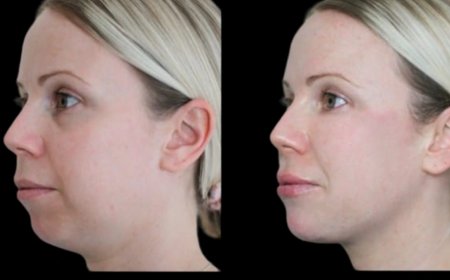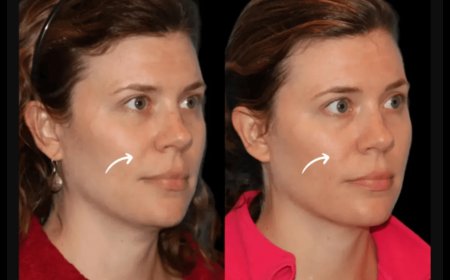Biosimulation Market: Market Growth and Future Trend (2034)
The biosimulation market is gaining significant momentum as pharmaceutical and biotechnology companies adopt advanced modeling tools to reduce drug development costs and improve clinical trial outcomes.

Overview
The biosimulation market is gaining significant momentum as pharmaceutical and biotechnology companies adopt advanced modeling tools to reduce drug development costs and improve clinical trial outcomes. Biosimulation enables researchers to predict biological responses, optimize drug dosage, and accelerate innovation in healthcare solutions. It integrates computational modeling with biological systems, offering a strategic edge in personalized medicine and precision therapeutics. The growing prevalence of chronic diseases, demand for safer drugs, and stringent regulatory environments are pushing companies to incorporate biosimulation into their R&D strategies. This transformative technology is reshaping the future of clinical development and medical research globally.
Expert Market Research on Biosimulation Market Growth
Market Size
The global biosimulation market reached a value of USD 3.50 Billion in 2024, reflecting its rising adoption across pharmaceutical research. Expert Market Research highlights that the industry is poised for robust expansion driven by its ability to cut clinical costs and improve drug efficiency. Growing use in both preclinical and clinical trials has positioned biosimulation as a vital tool for drug discovery and development. With continuous innovation in computational models and the increasing integration of artificial intelligence, the biosimulation market is witnessing greater application across academic and industrial research. Its expanding utilization indicates a strong foundation for long-term sustainability.
Market Trends
One of the prominent trends in the biosimulation market is the integration of artificial intelligence (AI) and machine learning (ML) to refine predictive accuracy in clinical trials. The adoption of cloud-based platforms is further driving accessibility, enabling real-time simulations and collaboration across global research networks. Companies are increasingly focusing on personalized therapies, and biosimulation provides a pathway to achieve tailored treatment regimens. Additionally, regulatory bodies are encouraging virtual trials and simulations as complementary evidence in drug approvals, which is boosting confidence in the technology. These advancements highlight the biosimulation markets transition from a supportive tool to a core R&D solution.
Market Opportunities and Challenges
The biosimulation market presents lucrative opportunities, particularly in drug development and personalized medicine, where cost efficiency and faster timelines are highly valued. Rising collaboration between software providers and pharmaceutical companies opens avenues for customized simulation platforms. Academic institutes are also adopting biosimulation for advanced research and education, widening its scope. However, challenges such as high implementation costs, limited skilled professionals, and integration complexities hinder adoption in developing economies. Additionally, data reliability and regulatory validation pose concerns, as outcomes must meet strict safety standards. Overcoming these challenges through innovation and training will unlock the markets true potential.
Market Segmentation
Breakup by Product and Services
- Software
- Services
Breakup by Delivery Model
- Subscription Model
- Ownership Model
Breakup by Application
- Drug Discovery
- Drug Development
- Others
Breakup by End User
- Pharmaceutical and Biotechnology Companies
- Contract Research Organization
- Academic Research Institutes
- Others
Market Growth
The biosimulation market growth is being fueled by the surging need for advanced computational models in drug development and clinical research. Pharmaceutical companies face increasing pressure to reduce drug discovery timelines and enhance success rates, leading to wider adoption of biosimulation solutions. Integration with AI and big data analytics is accelerating precision in predicting patient responses, which further strengthens market expansion. The rise in outsourcing to contract research organizations also contributes to growth, as they adopt biosimulation to enhance productivity. With personalized medicine gaining traction, biosimulation is emerging as an indispensable technology in healthcare innovation and therapeutic advancements.
Market Forecast
The biosimulation market is projected to expand significantly over the next decade, supported by technological innovations and rising demand for predictive modeling. By 2034, the market is expected to reach USD 16.68 Billion, growing at a strong CAGR of 16.90% between 2025 and 2034. This growth reflects the increasing reliance of pharmaceutical and biotechnology companies on biosimulation for drug approvals and risk management. The adoption of subscription-based models will enhance accessibility, while the development of cloud-enabled biosimulation solutions will further strengthen its market penetration. The outlook remains highly optimistic, signaling sustained investments and collaborations in the coming years.
Competitor Analysis
The biosimulation market features several key players driving innovation and global adoption. Companies are focusing on partnerships, technological enhancements, and expansion into new therapeutic areas.
- Certara Inc. Offers comprehensive biosimulation software and services for drug discovery and regulatory submissions.
- Dassault Systemes Provides advanced life sciences simulation solutions integrated with 3D modeling.
- Simulation Plus Specializes in software for pharmacokinetic and pharmacodynamic modeling.
- Schrodinger Inc. Known for computational platform enabling predictive drug discovery.
- Advanced Chemistry Development Inc. Delivers cheminformatics and simulation software solutions.
- Physiomics PLC Focused on oncology biosimulation for clinical trial optimization.
- Genedata AG Provides enterprise software for data analysis and biosimulation.
- Thermo Fisher Scientific Offers integrated biosimulation services within its life sciences portfolio.
- Immunetrics Develops biosimulation models for immune system and disease progression.
- BioSimulation Consulting Inc. Provides expert consultancy in simulation and modeling projects.
- Yokogawa Insillico Biotechnology GmbH Specializes in metabolic and bioprocess simulations.
- Chemical Computing Group ULC Offers molecular modeling and simulation software solutions.
Find More Report:
CDMO Market: https://bit.ly/45yUr3r
Biologics Market: https://bit.ly/3GOIayw
Medical Wellness Market: https://bit.ly/4mac6UT














